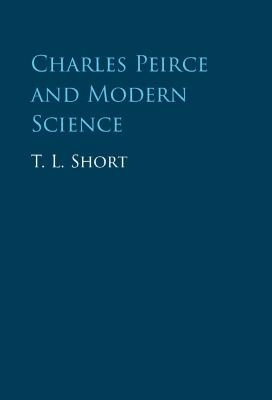
Charles Peirce and Modern Science
Seiten
2022
Cambridge University Press (Verlag)
978-1-009-22354-6 (ISBN)
Cambridge University Press (Verlag)
978-1-009-22354-6 (ISBN)
This book interprets Peirce's writings as informed by the spirit of modern science – systematic inquiry, not system-building – thus mitigating their notorious difficulties. It shows that Peirce's experimental work expanded empiricism, subverting the fact/value dichotomy. And it describes Peirce's ironic opposition of modern science to modernity.
In this book, T. L. Short places the notorious difficulties of Peirce's important writings in a more productive light, arguing that he wrote philosophy as a scientist, by framing conjectures intended to be refined or superseded in the inquiries they initiate. He argues also that Peirce held that the methods and metaphysics of modern science are amended as inquiry progresses, making metaphysics a branch of empirical knowledge. Additionally, Short shows that Peirce's scientific work expanded empiricism on empirical grounds, grounding his phenomenology and subverting the fact/value dichotomy, and that he understood statistical explanations in nineteenth-century science as reintroducing the idea of final causation, now made empirical. Those innovations underlie Peirce's late ideas of a normative science and of philosophy as a branch of science. Short's rich and original study shows us how to read Peirce's writings and why they are worth reading.
In this book, T. L. Short places the notorious difficulties of Peirce's important writings in a more productive light, arguing that he wrote philosophy as a scientist, by framing conjectures intended to be refined or superseded in the inquiries they initiate. He argues also that Peirce held that the methods and metaphysics of modern science are amended as inquiry progresses, making metaphysics a branch of empirical knowledge. Additionally, Short shows that Peirce's scientific work expanded empiricism on empirical grounds, grounding his phenomenology and subverting the fact/value dichotomy, and that he understood statistical explanations in nineteenth-century science as reintroducing the idea of final causation, now made empirical. Those innovations underlie Peirce's late ideas of a normative science and of philosophy as a branch of science. Short's rich and original study shows us how to read Peirce's writings and why they are worth reading.
Professor Thomas Short is President, Charles S. Peirce Society, 1990, Chairman, Board of Advisors to the Peirce Edition Project, 2001–2010 and President, Peirce Foundation, 2006–2014. His book, Peirce's Theory of Signs, was published by Cambridge University Press in 2007.
1. Peirce's life in science: 1859–91; 2. Peirce's concept of science; 3. Modern science contra classical philosophy; 4. The meaning of pragmatism; 5. Misleading appearances of system; 6. Devolution of the cosmogonic program; 7. Experiments expanding empiricism; 8. Phaneroscopy and realism; 9. Normative science; 10. Modern science contra modernity.
| Erscheinungsdatum | 14.09.2022 |
|---|---|
| Zusatzinfo | Worked examples or Exercises |
| Verlagsort | Cambridge |
| Sprache | englisch |
| Maße | 159 x 235 mm |
| Gewicht | 570 g |
| Themenwelt | Geisteswissenschaften ► Philosophie ► Philosophie der Neuzeit |
| Naturwissenschaften | |
| Sozialwissenschaften | |
| ISBN-10 | 1-009-22354-2 / 1009223542 |
| ISBN-13 | 978-1-009-22354-6 / 9781009223546 |
| Zustand | Neuware |
| Haben Sie eine Frage zum Produkt? |
Mehr entdecken
aus dem Bereich
aus dem Bereich


